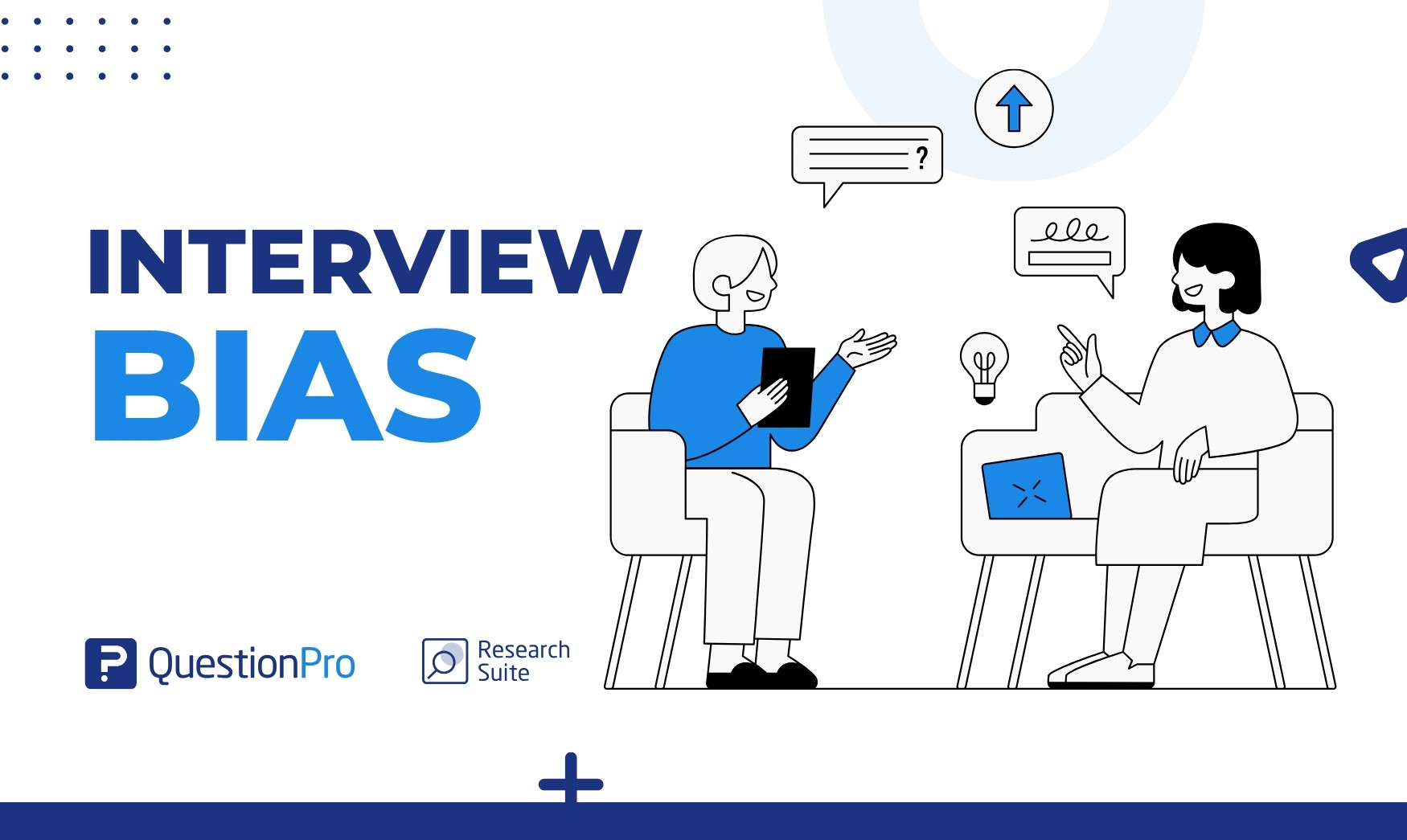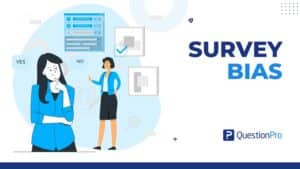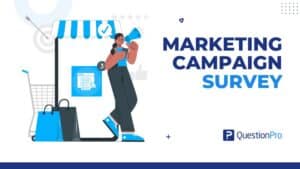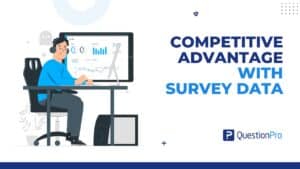
How can you ensure fair and unbiased hiring decisions? The answer lies in understanding and addressing interview bias.
We all want to pick the best people when hiring, but sometimes, our choices are affected by these hidden biases—ideas we have about others without realizing it. For example, asking questions like, Where did you go to college? Or what sorority/fraternity were you in? They might seem harmless, but they can actually be biased.
To make hiring fairer, we can teach interviewers about bias in interviews. In this blog, we will discuss what interview bias is, various types of this bias, and some solutions to avoid it.
What is interview bias?
Interview bias refers to the unfair and prejudiced treatment of job candidates during the interview process. It occurs when interviewers make judgments based on factors that are not relevant to the candidate’s ability to perform the job. These factors may include race, gender, age, appearance, or personal connections.
It can result in the selection of less qualified candidates, limiting diversity in the workplace and fostering an unfair recruitment process. To address this bias, companies often implement training programs for interviewers, use structured interview techniques, and promote diversity and inclusion initiatives.
The goal is to ensure that hiring decisions are based on merit and the candidate’s ability to perform the job rather than irrelevant factors.
Why Is It Important to Avoid Interviewer Bias?
Here, we’ll explore the compelling reasons why interview bias is crucial to avoiding interviewer bias in the recruitment process.
Everyone Deserves a Fair Shot
Imagine you’re super excited about a job, you’re all prepared, and then, bam! The interviewer makes judgments based on stuff that doesn’t matter for the job. Not fair, right? We all deserve a fair chance based on our skills and abilities, not on things like how we look or where we come from.
Building a Diverse Team Rocks
Have you ever noticed how cool it is when a group of people with different ideas and backgrounds come together? That’s diversity, and it makes teams stronger! If interviewers only pick people who are like them, we end up with a team of clones. Boring, right? Avoiding bias helps bring in all kinds of talents and perspectives.
Skills Over Stereotypes
Let’s talk stereotypes. They’re like those silly ideas we have about certain groups of people. But guess what? They’re usually wrong! If interviewers let stereotypes guide their decisions, it means they’re not focusing on what really matters: your skills and what you can bring to the table. Nobody wants to miss out on a great candidate just because of some old-fashioned thinking.
Fairness Makes Everyone Happy
Imagine you work super hard to prepare for an interview. You’re nervous, but you give it your all. Now, imagine the interviewer already decided before the interview started. Not cool, right? When interviews are fair, everyone feels good about the process. It’s like playing a game where the rules are clear, and everyone has a shot at winning.
It Helps Companies Grow
Companies want to be the best they can be, right? Well, that happens when they get the best people on board. If interviewers let biases sneak in, they might miss out on awesome talent. Avoiding bias ensures companies get a mix of skills and ideas. It makes them stronger and more successful.
Making Better Choices
When interviewers avoid bias, they make better choices. It’s like picking the perfect ice cream flavor; you want to try different ones to find your favorite! In the same way, interviewers need to see each candidate’s unique qualities to make the best choice for the job.
Types of Interview Bias
To make the hiring process fairer, it’s crucial to recognize and understand the biases that can sneak into interviews. Let’s take a closer look at eight leading types of interview bias that can impact decision-making:
01. Stereotyping Bias
Stereotyping happens when you judge someone based on assumptions about their group, like their race, gender, or background. For example, women are not considered women for management roles because of the stereotype that women lack leadership skills.
02. Nonverbal Bias
Sometimes, you can get biased by things that aren’t spoken, like how someone moves or looks. For example, if a person in an interview is fidgeting with their clothes, the interviewer might get distracted and think they’re not a good match, even if they’re really skilled.
03. Halo/Pitchfork Effect Bias
The halo effect occurs when we’re so impressed by one aspect (like certifications) that we assume excellence in everything. Conversely, the pitchfork effect happens when a perceived weakness clouds all other characteristics, like judging a candidate based on an unattractive resume.
04. Beauty Bias
This bias is about appearance and how it affects judgments. People who align with common standards of attractiveness might be perceived as doing well, even though appearance has nothing to do with job skills.
05. First Impression Bias
First impressions often rely on biases like attractiveness or stereotypes rather than actual skills. Since some hiring decisions happen in the first ten minutes, it’s important to recognize and challenge these quick judgments.
06. Contrast Effect Bias
This bias involves comparing candidates based on the one before them. If the previous interview went poorly, the current candidate might seem better, even if they don’t meet all qualifications.
07. Similarity Bias
People often hire others who are similar to themselves. This bias leads interviewers to prefer candidates who resemble them, resulting in less diversity within teams.
08. Overconfidence and Confirmation Bias
Overconfidence leads to jumping to conclusions about candidates. This can result in confirmation bias, where interviewers ask questions that align with their preconceived judgments, reinforcing their initial beliefs.
Recognizing and addressing these biases is crucial for building diverse and effective teams. Organizations can create a more inclusive and equitable hiring process by promoting awareness and encouraging objective evaluation.
How to Avoid Bias in Interviews
Job interviews are like meeting new people. But sometimes, our brains can play tricks on us, making us think certain things about someone that might not be true. This is called bias, and it can sneak into job interviews. In this blog, we’ll explore some easy ways to avoid bias and make sure everyone gets a fair shot.
- Know Your Biases: The first step to avoiding bias is knowing it exists. We all have our own ideas and opinions, and sometimes, these can affect how we see others. Take a moment to think about your own biases so you can catch them before they influence your decisions.
- Use a Structured Interview Process: Think of the interview like a game with rules. A structured interview process means asking every candidate the same questions in the same way. This helps you focus on skills and qualifications rather than personal feelings.
- Focus on Skills and Experience: When talking to candidates, concentrate on their skills and experience related to the job. This way, you’re judging them based on what matters for the role, not on things like appearance or personal preferences.
- Include Diverse Hiring Manager: Having different people in the interview process brings in various perspectives. This helps prevent one person’s biases from taking over. A diverse team can make fair decisions that consider everyone’s strengths.
- Use Rating Systems: Create a simple rating system for each candidate based on their skills and answers. This can make it easier to compare candidates objectively, focusing on what they bring to the job.
- Continuous Training: Learning never stops! Keep educating yourself and your team about different types of biases and how to avoid them. Regular training helps everyone stay aware and make fair choices.
How Can QuestionPro Help in Reducing Interview Bias?
Interview bias can unknowingly seep into the hiring process, affecting the outcomes and potentially limiting diversity. QuestionPro, as a powerful survey and data collection tool, plays a crucial role in reducing bias and fostering a fairer hiring environment. Let’s explore how QuestionPro can be a valuable ally in this quest.
Structured Questioning
QuestionPro enables interviewers to create structured questionnaires that ensure consistency across all interviews. By asking each candidate the same set of questions in a standardized format, interviewers can focus on evaluating responses based on merit and job-related criteria rather than personal biases.
Anonymous Feedback
To encourage honest and unbiased evaluations, QuestionPro allows for anonymous feedback from interviewers. This feature helps in capturing genuine opinions without the fear of judgment, allowing a more transparent and fair assessment of candidates.
Diverse Question Formats
The platform supports various question formats, including multiple-choice, open-ended, and rating scale questions. This flexibility ensures that interviewers can tailor questions to assess specific skills and competencies, minimizing the risk of biases influenced by irrelevant factors.
Predefined Assessments
QuestionPro allows organizations to create predefined assessments based on the essential skills and qualifications required for a particular role. This ensures that all candidates are evaluated against the same criteria, reducing the likelihood of subjective judgments.
Real-time Collaboration
The platform facilitates real-time collaboration among interviewers and hiring teams. This feature is valuable in promoting diversity in decision-making by allowing multiple perspectives to be considered during the evaluation process.
Data Analytics and Reporting
QuestionPro provides robust analytics and reporting tools that help organizations analyze interview data comprehensively. By leveraging these insights, organizations can identify patterns, trends, and potential biases in the evaluation process, enabling them to make data-driven adjustments for future interviews.
Continuous Improvement Surveys
To create a culture of continuous improvement, QuestionPro allows organizations to deploy surveys to gather feedback from both candidates and interviewers. This feedback loop helps in identifying areas for improvement, ensuring that the interview process evolves to be more inclusive over time.
Conclusion
Interview bias is a challenge that demands our attention. From understanding the various types of bias to practical tips on avoiding them, this blog empowers readers to foster fairness in their hiring processes. Embracing QuestionPro as a tool to combat bias provides a strategic advantage, offering structured questioning, anonymous feedback, and valuable analytics.
By recognizing, addressing, and utilizing tools like QuestionPro, you can make the hiring process more fair and equal for everyone in the future. Contact QuestionPro right away for further information!







